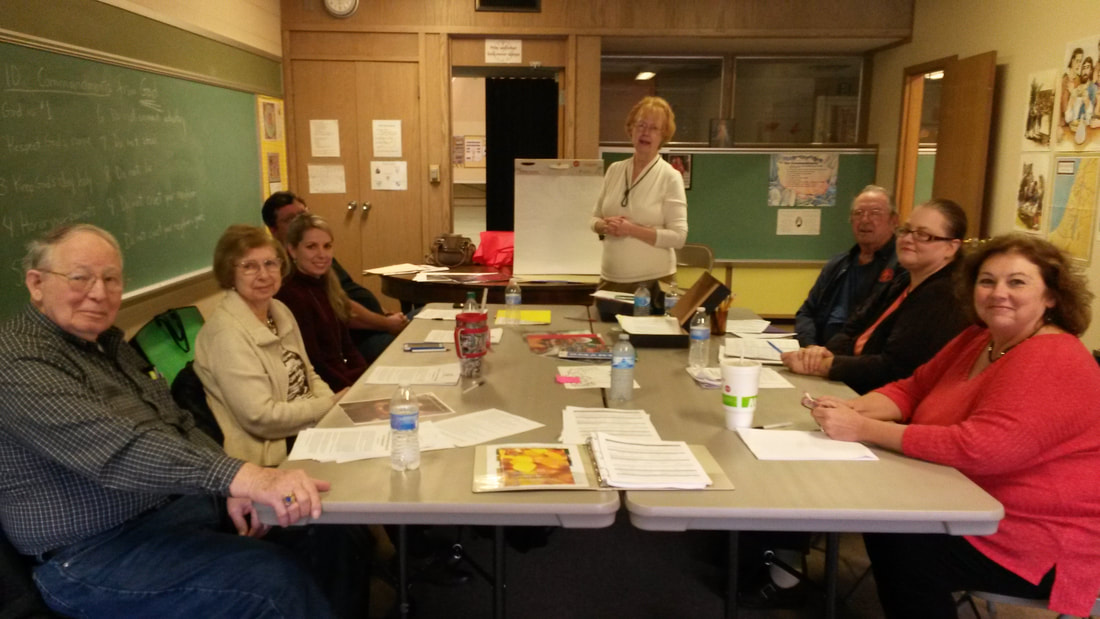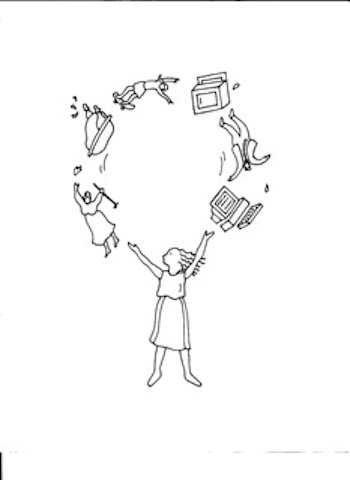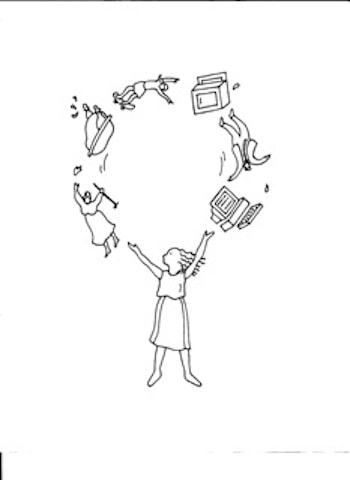|
According to The Strange Political Silence On Elder Care, the problem is our society has an extraordinary number of caregivers who haven’t formed a group to push for change. Unlike other groups, such as Mothers Against Drunk Driving (MADD), caregivers should have formed a constituency to insist on changes which better support them; but they haven’t. Why not? One surprising finding is that caregivers don’t recognize themselves! How can our society offer support to a person who denies needing help? How can we help if they believe they can’t ask? What is the effect of this lack of coalescing, lack of self-identification and the resulting failure to prepare and plan?
This article describes the possible reasons:
Senior Sidekicks has stood with caregivers for the past 12 years! The caregiving phase is the newest part of life’s journey. A little over 100 years ago, people didn’t live long enough to reach this stage. Our firm has struggled to get new caregivers and those in the midst of caregiving to accept help. Perhaps this article explains why people, who are otherwise prudent, take such a strange view of caregiving. Let’s compare and contrast caregiving attitudes with attitudes to other parts of life’s journey: Your getting married, do you make plans? What kind of a wedding would you have if you didn’t acknowledge you were engaged? How would you bring your lives together in marriage: legal, financial, religious, integrating your families, where to live, and children? My parents, like many during WWII, had a hurry-up wedding. They were high school sweethearts, and engaged in college. When my father finished his course work and ROTC, he was shipped to Texas. The university mailed his diploma. My mother took the train to Texas and they were married by a preacher on base. They had 3 weeks of wedded bliss before he shipped out for 3 years! Mother went home to a fire storm! Both sets of parents were in shock. Mother had not completed her college education; could she go back and finish? Would the all-girls school take her back as a married woman? Neither of my parents had completed paperwork naming her his spouse? Forms and letters took a long time to reach soldiers in the field and even longer to receive replies. Who would be the listed next-of-kin in the event he didn’t come home? She even had to discuss possible burial arrangements!! Who was now responsible to pay for her education? Was she to receive his pay since she was his spouse? Mother described it as a very trying time that she had to face alone because they didn’t plan. Weddings are as much a family matter as caregiving. A wedding, without planning, causes major stress. Caregiving, without planning and support also causes major stress. Yet, families will tell me they’ll handle it all by themselves: really? Let’s look at another example: You’re having a baby! Does that mean you don’t need any help? If you’re expecting do you still need proper medical care, resolve legal matters, insurance, or a larger place to live? We expect that expectant parents need help. We’ve developed the social systems to provide it. Having children brings many resources into the family. There are Family Medical Leave Act (FMLA) for both parents in certain situations. There are prepared childbirth classes, visiting nurses to the home after delivery and new mother’s groups. Relatives come to help the new mother and baby. Everybody sends food! It’s acceptable to have help for babies, why not for caregivers? The difference is we’ve had babies for millennia; caregivers, less than 100 years. Thus, the family caregiver may or may not receive some defacto help from her church, neighbors, or friends. There’s no visiting nurse system. The caregiver can take FMLA but it’s complicated and doesn’t always cover the type of caregiving the employee needs to give the elder. Many FMLAs don’t pay the employee. Caregiving may mean moving the elder closer to the caregiver, or moving in with the elder. Caregiving may be so demanding that it afflicts the caregiver’s health. The caregiver may be forced to quit the job. A break in the caregiver’s career creates a major financial setback as the caregiver tries to re-enter the workforce. Caregivers often draw on their retirement savings during caregiving. Other developed countries have seen this writing on the wall and started putting plans in place. Why can’t the US do that? We can, if we act now. You can do two things:
Talk to your neighbors. Ask what your church is doing for caregivers? Ask your employer the same thing. FMLA, by itself, is not an adequate response.) Are you a member of a union; put caregiver support on the bargaining table. We already have mandatory courses in sexual harassment and discrimination. Make caregiving training the next mandatory course. Are you an employer? If you prepare for tornadoes; prepare for this gray tsunami. By 2030, 1 in 5 Americans will be over age 60 ENTER THE POLITICAL DEBATE ON THE SIDE OF CAREGIVERS: It’s time to insist that the political conversation of this campaign is about p-r-e-p-a-r-i-n-g for this gray tsunami! It touches everyone. It’s not red or blue, it’s GRAY. Candidates will ask for your vote; tell them to put caregiving in their platform to get your vote! Caregiving is at least as important as any other policy
0 Comments
Imagine you’re sitting quietly in a meeting or religious services; suddenly your heart starts pounding. You feel like your blood is coursing through the veins in your arms and legs. It’s bewildering and scary: Why?! There is nothing about this setting that calls for such a reaction. Yet, you have this reaction. It is important that caregivers understand what leads to this reaction and what they can do about it.
It’s a “fight or flight response gone wrong. It developed when we had to run away from Saber Tooth Tigers. Our ancestors were successful, that’s why we’re here. Those ancestors passed down to us their methods of coping with their world. Our modern world doesn’t have the same kinds of stressors, especially for caregivers. Our stressors are less clearly defined And they last longer. Our stressors change shape; one minute we’re dealing with the house-the spouse-the kids-and-the job. Then there’s a crisis and we’re caregivers for Mom! From that point forward, our caregiving increases but with no way to know when the need will become greater or how long caregiving will last. Our bodies respond as our ancestors’ once did; we produce Cortisol to rise to this crisis. The process goes like this: Stress causes the Hypothalamus to secrete. That triggers the Pituitary Gland to secrete. The Adrenal gland secretes Cortisol. This process has several names: HPA Axis, HPA Cascade or Syndrome X, or AKA Insulin Resistive Syndrome. (Wouldn’t it be helpful if we could all agree on one name?) It’s not the crisis that’s the problem. It’s the crisis that doesn’t end that creates bad effects on caregivers. The effects show up in different ways. Cortisol encourages promotes fat deposits in the outer layer of the body, especially the waist. Some caregivers gain weight. We can measure this effect by doing a BMI (Body Mass Index). Other caregivers have different conditions; heart disease, Type-2 Diabetes and Stroke. We can measure Cholesterol levels through a C-Reactive Protein lab test. We can also do a cheek swab to check Cortisol level. However, how many doctors don’t even ask patients if they are caregivers. The tests are there but they are not used to evaluate identified caregivers at this time on a general basis. You need to ask for them. When our bodies rise to meet a crisis: they must also let down. Even Saber Tooth Tigers would give chase and then give up. The caregiver’s duties do not end the same way. In fact, they do not “end” unless we place some “ending points” into the caregiver’s life. That is the role of self care, to provide end points such as respite and small moments. That’s why it’s necessary to spread the caregiving load so it doesn’t fall on one person. That is why we need to enlist family to give caregivers this kind of support. Otherwise, the caregiver can be sitting quietly in religious services and the Cortisol response “alarms” for no exterior reason. We need to advocate for caregivers to be recognized in the medical arena. Learn more by taking our course; Preparing to Parent Your Parent. When someone advises you to, “take care of yourself”; that doesn’t explain how. Elder caregiving is so new that some methods are still under development. However, we know some things that work and some to avoid. Self care does not mean a day at the spa. For many caregivers such a day would be out of reach financially or out of time to devote to a spa. Therefore, plan to care for yourself in moments, not hours. Think about your life like your heart; it beats all the time. Actually your heart takes a tiny rest between each beat that allows it keep going. When you care for yourself in moments, you pause and continue.
Try these ideas. Put up a sign saying, I NEED A MOMENT, to remind yourself to pause. Put up other signs family can see to remind them that you might need a moment before you can respond to their requests. Is the person in need bleeding or on fire? If the answer is no, then it’s OK for you to take a moment. It’s OK to train your family to allow you to do so. It’s OK for you to ignore repeated pleas for your attention (for a moment). Training takes time but you’re worth it. What do you do in that moment? Be sure you are safe. If you’re up on a ladder, get down first. Focus on something blank, like a wall or the ceiling. Breathe, deeply, through your nose, hold and count to 3 or 4. Let your breath out through your mouth but slowly; 1-2-3-4. Now, if you can afford the time, try looking at something peaceful; out a window, at a picture, or at some memento that is meaningful to you. Breathe again the same way. Many caregivers respond with; “I don’t have time to …” You’re right, time is at a premium. Most caregivers find themselves in that role at the same point they also have the house-the spouse-the kids-the job-the pets and MOM! You have a lot on your plate. Sometimes caregivers believe they can wait until they have time. By waiting until later, the damage from lack of self care will have done its worst. Undoing damage is much harder. The best intervention is prevention. Prevention comes in bits of time you claim now. Suppose you actually have a whole hour to yourself. It’s a gift! Ask yourself, “What refreshes me?” Notice I didn’t say what can I eat nor where can I sit down? Some caregivers eat to cope with stress. We need nourishment but not that way. Rhythmic movement, like walking, can help us feel less worn and is surprisingly refreshing. If you can’t go far; walk around the house or around the block. If you live in an apartment building, walk in the hall. “Go get the mail”, that errand will buy you a few minutes. Try to set a self care routine just as you have set other routines with child care or at work. Routines help us get things done without doing us in. Some things to avoid include sugar and alcohol. The stress hormone, Cortisol, takes sugar and converts it into weight around your middle. Sugar may not be sweet; baked goods convert to sugar. As part of a balanced meal they’re fine; as a snack, not so much. Large amounts of food can have a numbing effect; like a Thanksgiving dinner. When we feel numb, our minds seem to turn off. When you see you have time and turn to the refrigerator; ask yourself why are you eating? In a similar way, alcohol can create a numb feeling. We believe we’re relaxed but a caregiver’s immune system is more vulnerable and needs extra protection that alcohol doesn’t provide. Alcohol is also a depressant, which won’t help caregivers. So how does one “turn off” the constant “list-making” that goes on in the caregiver’s mind? Try other things. Try relaxing teas like Passion Flower, Elder Flower or Chamomile. Try playing some relaxing music that’s meaningful to you. Try a rhythmic movement “dance” (try it with your partner). Try a hot shower or better, a hot bath. Try placing essential oil of lavender in your bedroom. All of these set the stage for relaxation. Develop your own mediation or routine to think about at bed time instead of a to-do list. There are also tapes available. So self care comes in moments you claim as your own. To learn more ways to cope, take our course: Preparing to Parent Your Parent. |
Author "A Senior Moment" is written by Ms. Sara Lieber, owner of Senior Sidekicks. Ms. Lieber has over 30 years of experience in senior care. Archives
March 2024
Categories
All
|




 RSS Feed
RSS Feed